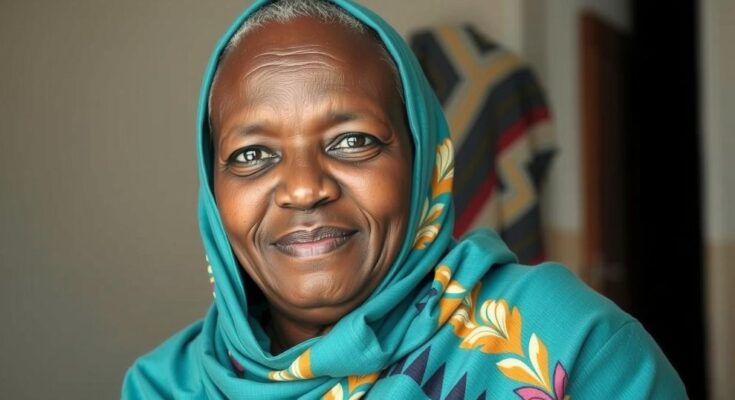Halima Mohammed Ali, a Sudanese refugee in South Sudan, remains steadfast in her Christian faith despite threats and violence from her Muslim husband following her conversion. She lives in a refugee settlement and actively participates in church services while facing pressure from her husband’s family to renounce her religion. The situation highlights the broader context of persecution faced by Christians in Sudan amid ongoing political turmoil and violence.
In South Sudan, Halima Mohammed Ali, a Sudanese refugee and mother of five, continues to stand firm in her Christian faith despite facing severe challenges stemming from her conversion. Four months after a violent knife attack by her Muslim husband, Ali lives in the Gorom Refugee Settlement, approximately 25 kilometers from Juba, the capital. Despite threats to abandon Christianity, she remains dedicated to her beliefs and participates in church activities, urging prayers for strength in her faith. The escalating all forms of violence against Sudanese Christians often arises from both non-state and state actors, including pressures following the military coup that reinstated stringent interpretations of Islamic law.
The political landscape in Sudan has been considerably tumultuous since the overthrow of long-time dictator Omar al-Bashir in 2019. While there was initial progress in religious freedom due to the establishment of a transitional civilian-military government, this was reversed following the military coup on October 25, 2021. Communities of Christians within Sudan have faced increasing persecution, currently reflected in its ranking by Open Doors on the 2024 World Watch List as the eighth most dangerous country for Christians globally. In the wake of armed conflict and state-sponsored repression, the plight of individuals like Halima Mohammed Ali highlights the urgent need for international awareness and support for religious freedom in the region.
The situation of Christians in Sudan has been historically fraught with persecution, particularly following the military coup of October 2021. The coup halted progress towards religious freedoms established in the wake of the 2019 overthrow of Omar al-Bashir, leading to renewed fears of harsh Islamic law. Amidst this backdrop, Halima Mohammed Ali’s courageous stance represents not only personal resilience but a broader struggle for religious freedom faced by Christians in Sudan.
Halima Mohammed Ali exemplifies the resilience of many Christians in Sudan facing persecution, as she continues to uphold her faith amid threats and violence. The situation underscores the critical need for continued advocacy and awareness of the religious oppression occurring in the region. With escalating attacks on Christians, both state-sponsored and from non-state actors, vigilance and support from the international community is essential in fostering an environment of religious freedom and security.
Original Source: morningstarnews.org




